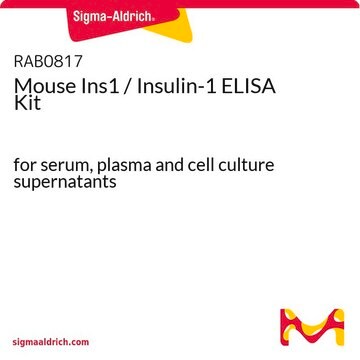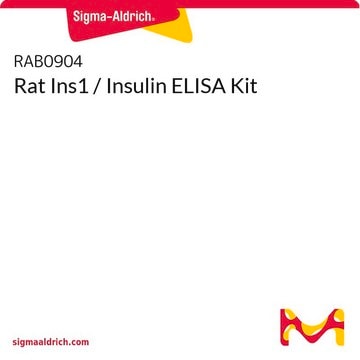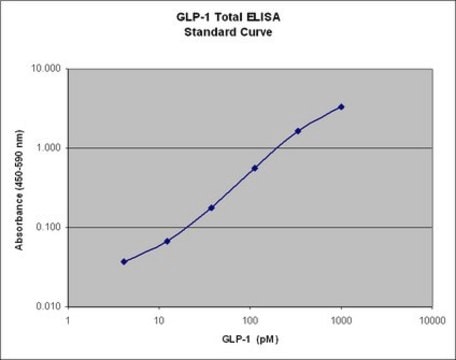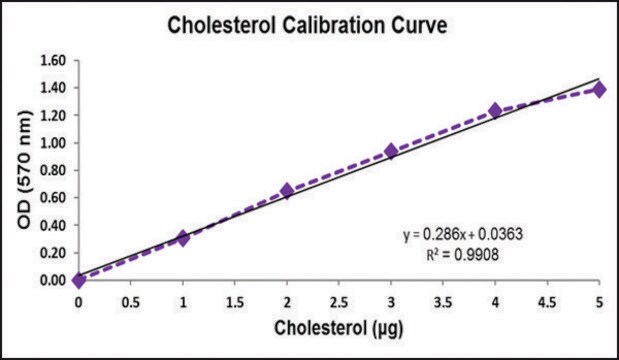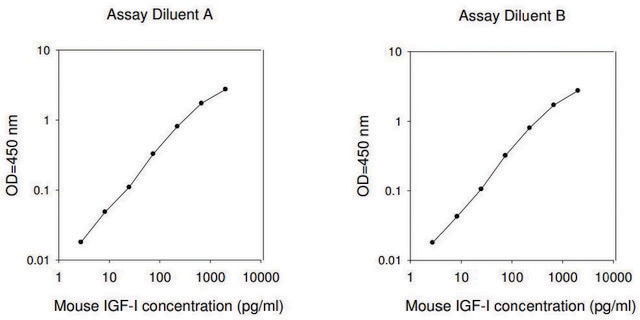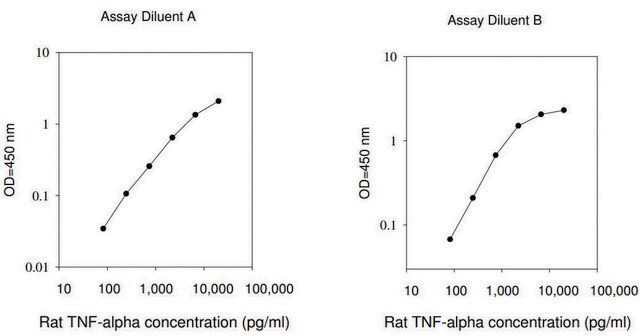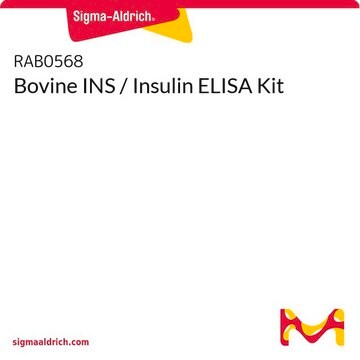EZRMI
Rat/Mouse Insulin ELISA Kit
measures and quantifies insulin levels in 10 μL serum or plasma
Synonym(s):
Insulin
About This Item
Recommended Products
product name
Rat/Mouse Insulin ELISA, This Rat/Mouse Insulin ELISA is used to measure & quantify Insulin levels in Metabolism & Endocrine research.
Quality Level
species reactivity
mouse, rat
packaging
kit of 1 × 96 wells
parameter
10 μL sample volume (4hr assay)
assay range
accuracy: 83-102%
linearity: 79-133%
sensitivity: 0.2 ng/mL
standard curve range: 0.2-10 ng/mL
technique(s)
ELISA: suitable
input
sample type serum
sample type plasma (K2 EDTA)
application(s)
research use
detection method
colorimetric (450nm/590nm)
shipped in
wet ice
storage temp.
2-8°C
General description
Application
Biochem/physiol Actions
Other Notes
Research Category: Metabolism
Research Sub Category: Obesity/Metabolic Disorders
Disclaimer
Signal Word
Warning
Hazard Statements
Precautionary Statements
Hazard Classifications
Met. Corr. 1 - Skin Sens. 1
Storage Class Code
8A - Combustible corrosive hazardous materials
Certificates of Analysis (COA)
Search for Certificates of Analysis (COA) by entering the products Lot/Batch Number. Lot and Batch Numbers can be found on a product’s label following the words ‘Lot’ or ‘Batch’.
Already Own This Product?
Find documentation for the products that you have recently purchased in the Document Library.
Customers Also Viewed
Our team of scientists has experience in all areas of research including Life Science, Material Science, Chemical Synthesis, Chromatography, Analytical and many others.
Contact Technical Service